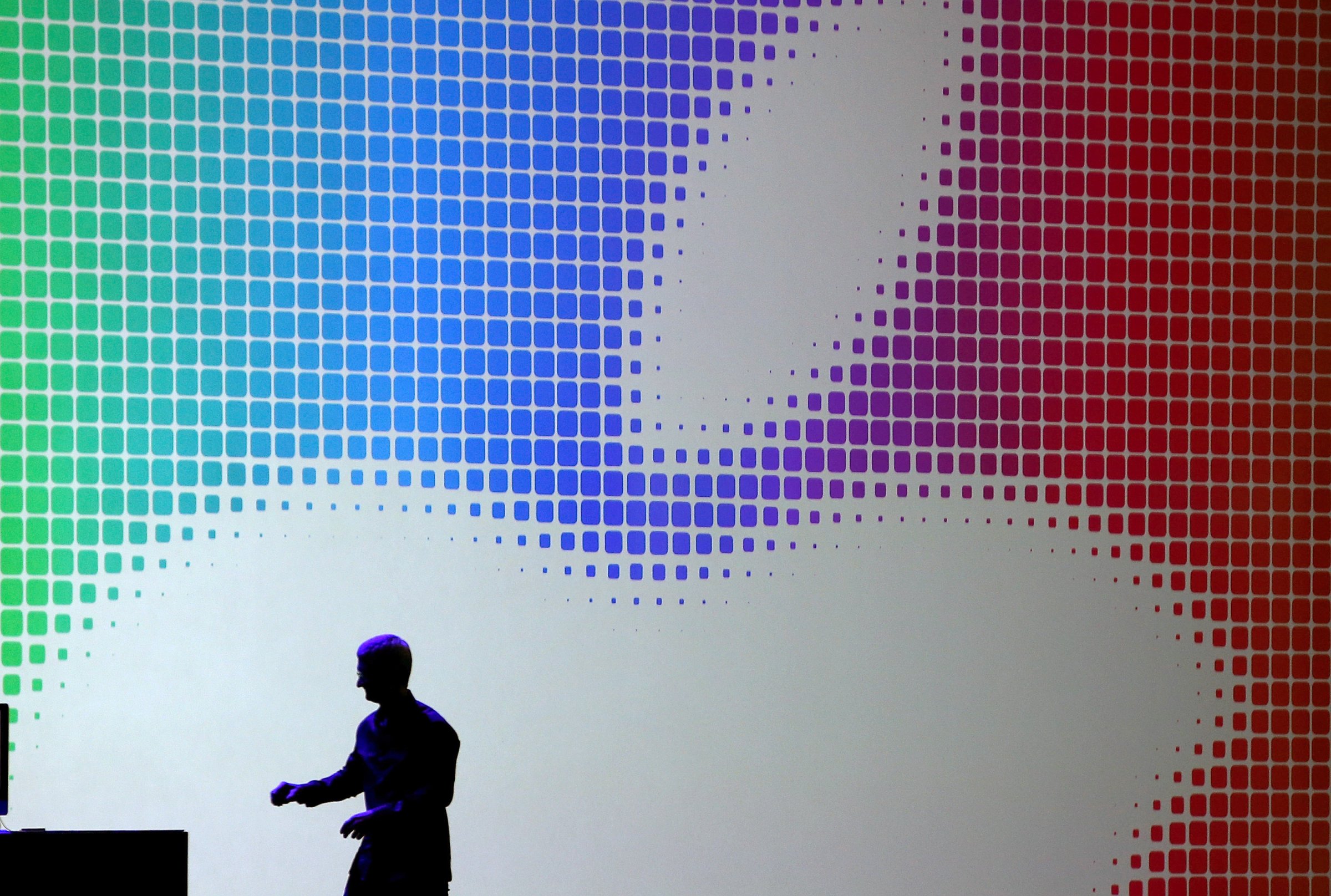
When Steve Jobs stepped down as Apple’s CEO on August 24, 2011, the company’s future was anything but certain. The tech giant had become the most valuable company in the world just weeks before, thanks to a decade’s worth of wildly successful new products like the iPod, iPhone and iPad. The disruptive devices were credited almost exclusively to Jobs’ genius, and consumers as well as Wall Street analysts wondered whether Tim Cook, his soft-spoken successor, could guide Apple even higher.
Fast forward three years and Cook has proved his doubters wrong. This week, he got quite the anniversary gift when Apple’s stock reached an all-time high, largely because of strong recent earnings reports and anticipation of the iPhone 6, rumored to be announced this fall. Apple’s new share price high is a sign investors are buying into Cook’s vision for the companys’ future, which looks different from Jobs’s.
Here’s a look at four ways Apple has changed during the Era of Cook.
Only Cook Could Go to China
Jobs famously never visited China during his tenure as Apple CEO—that was Cook’s job, who served as the company’s chief operating officer before Jobs stepped down. As CEO, Cook has taken a more hands-on approach in the world’s most populous country, visiting China multiple times to meet with government officials and survey Apple’s factories there. Even more important than the trips is the deal Cook inked last year with China Mobile, the world’s largest wireless carrier, to carry the iPhone. His focus on the country has paid off handsomely. China is now Apple’s fastest-growing sales market by far, generating $5.9 billion in revenue in the most recent quarter.
“There is no doubt [Cook] recognizes the fact that China will become Apple’s number one market,” Thomas Husson, an analyst at Forrester, said in an email to TIME.
Goosing Apple’s Stock Through Share Buybacks
Investors have long clamored for Apple to make better use of its massive $160 billion cash hoard. Jobs ignored a suggestion by Warren Buffet to launch a share buyback program, but Cook has launched a massive share repurchase plan to reclaim $90 billion in company stock. Such programs make investors happy by putting cash in their pockets, while also improving a company’s financial optics by boosting its earnings per share. The share repurchase plan, which was expanded earlier this year, has helped Apple stock rally in recent months after tumbling from an all-time high in September 2012. In fact, the company’s 25% gain in stock price since purchasing $18 billion of its shares in the first quarter of the year was the best return ever following a share buyback, according to Bloomberg.
Diversifying Apple’s Core Products
Part of Apple’s financial success stems from the fact that it manufactures a relatively small slate of products that sell on a massive scale. Cook has deviated somewhat from this strategy by introducing variants on the iPad (the iPad Mini) and the iPhone (the iPhone 5c) that serve as smaller cheaper alternatives to Apple’s flagship devices. Apple doesn’t break out the sales of individual products within the iPad and iPhone lines, but according to mobile marketing firm Fiksu, the iPad Mini was the second most-used iPad as of April. More impressive than the sales is the fact that Cook has been able to keep Apple’s margins impressively high while adding new production costs.
“Jobs did a lot of the heavy lifting developing home run products such as the iPad and iPhone,” says Bill Kreher, an equity analyst at Edward Jones. “Cook has been able to extend the reach of those products, improving profitability.”
Increasing Apple’s Acquisitions and Partnerships
Apple made few acquisitions in the Jobs era, and they were generally small. Cook, on the other hand, has bought up 23 companies since taking the reins, according to Crunchbase. No buyout caused more waves than Apple’s $3 billion purchase of Beats Electronics, which was either a smart acqui-hire of Beats’ music and marketing maestros or proof that Apple has lost its creative spark, depending on your perspective. The purchase mainly showed that Cook isn’t afraid to seek help from outside his Cupertino headquarters. For more evidence, consider Apple’s recently announced partnership with former nemesis IBM to bring a suite of enterprise apps to iOS.
Make no mistake—investors are still clamoring for Cook to release a new product disruptive as the iPhone or the iPad. Rumors persist that Apple will eventually launch an iWatch, or perhaps a pay-TV service to compete with cable. For now, though, with iPhone sales climbing ever higher and investors’ pockets being lined through a share buyback, Wall Street seems content with Apple’s trajectory.
“You have Steve Jobs, who was the innovator, the visionary,” says Kreher, “and you have Tim Cook, who is a good steward of the business and is an excellent executor.”
More Must-Reads from TIME
- Introducing the 2024 TIME100 Next
- The Reinvention of J.D. Vance
- How to Survive Election Season Without Losing Your Mind
- Welcome to the Golden Age of Scams
- Did the Pandemic Break Our Brains?
- The Many Lives of Jack Antonoff
- 33 True Crime Documentaries That Shaped the Genre
- Why Gut Health Issues Are More Common in Women
Contact us at letters@time.com